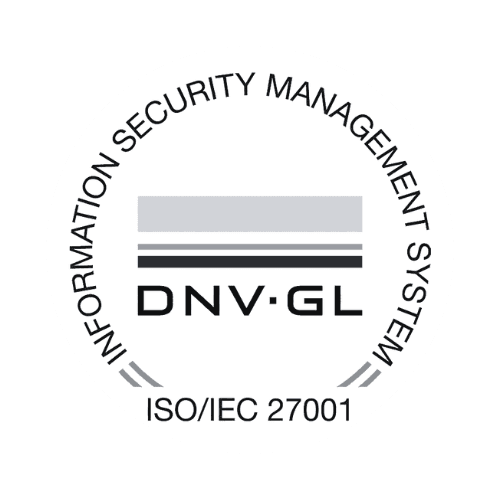Bądź pierwszy, który się dowie
Written by AI
Remote Work: Acquiring Employees Without In-Person Meetings
The working world has undergone significant changes in recent years, and remote work is gaining increasing importance. Companies recognize the advantages of this way of working and are striving to acquire employees without in-person meetings. In this article, we will explore the significance of remote work, the benefits and challenges for companies, and strategies for effectively acquiring remote employees. Additionally, we will examine the role of company culture and onboarding in relation to remote employees.
The Significance of Remote Work in the Modern World
Remote work enables employees to work from anywhere as long as they have a stable internet connection. This allows companies to access talent from around the world, regardless of their geographical location. Simultaneously, it provides employees with the flexibility to organize their work according to their own needs and preferences.
The flexibility offered by remote work is particularly significant in today's globalized world. Employees can adjust their working hours to better balance family and work. Furthermore, it enables them to work in an environment where they feel most productive, whether it be from home, in a café, or even at an exotic location.
The Benefits of Remote Work for Companies
Remote work offers numerous benefits to companies. Firstly, it allows them to reduce costs for office space and equipment. It also enables them to hire skilled professionals with specific abilities and knowledge that may be challenging to find near the company's location. Additionally, employee productivity may increase as they can work in a comfortable work environment.
Another important advantage for companies is the opportunity to enhance employee satisfaction. Through the flexibility of remote work, companies can become attractive employers and attract and retain talented professionals. Satisfied employees are generally more motivated and loyal to their employer, which can have a positive impact on company culture.
The Challenges of Remote Work
Despite the numerous advantages, there are also challenges associated with remote work. One of the greatest challenges is effective communication among employees. Information exchange and collaboration must occur through digital channels, requiring clear and precise communication. Additionally, remote employees may feel isolated, and it can be more difficult to develop a sense of belonging and team spirit.
To overcome these challenges, it is important for companies to invest in the right tools and technologies to facilitate communication and collaboration. Training for virtual teamwork and measures to promote team spirit can also help minimize the negative impacts of remote work. Ultimately, it is crucial for companies to develop a balanced remote work policy that considers the needs of employees and the goals of the company.
Strategies for Effectively Acquiring Remote Employees
Acquiring remote employees requires a targeted strategy to attract and convince the right talent. Here are some key strategies that companies can employ:
Searching for remote employees can be a challenge, as traditional recruitment methods may not suffice. It is important to find innovative ways to engage potential candidates and excite them about the benefits of remote work. Targeted outreach through social media and specialized remote job boards can be helpful.
The Role of Technology in Remote Hiring
Technology plays a crucial role in remote hiring. Companies need to ensure that they have the right tools and platforms to enable seamless communication and collaboration. Video conferencing and project management tools are often essential.
The selection of the right technologies for remote work is crucial to the team's success. In addition to communication and collaboration tools, companies should also pay attention to security aspects to ensure the protection of sensitive data. Implementing a secure VPN connection and providing regular training on safe technology usage can help minimize potential risks.
Key Skills for Remote Employees
Remote employees should possess certain key skills to work effectively. These include good self-organization, time management skills, communication skills, and the ability to work independently and proactively. Companies should consider these competencies when selecting remote employees.
Another important aspect in selecting remote employees is their soft skills. Empathy, teamwork, and conflict resolution skills are crucial for harmonious collaboration, especially in virtual teams. Through targeted interviews and case studies, companies can better assess the candidates' soft skills and ensure that they align with the company culture.
The Role of Company Culture in Remote Work
Company culture also plays an important role in remote work. Companies must build a strong remote company culture to promote a sense of belonging and team spirit. This can be achieved through regular virtual team meetings, team building activities, and the establishment of a positive work environment.
Remote work has gained significance in recent years, particularly due to technological advancements and globalization. Many companies have realized that by allowing employees to work remotely, they can benefit from a larger talent pool. However, this has also brought about new challenges, including the need to maintain a strong company culture even when employees are physically separated.
Establishing a Strong Remote Company Culture
To establish a strong remote company culture, it is important to define clear company values and goals and ensure that they are understood and shared by all employees. Additionally, an open and respectful communication style should be promoted, and regular feedback and recognition of employee achievements should be ensured.
Introducing virtual coffee breaks or informal chats can also help promote informal exchange and interpersonal relationships, which often spontaneously occur in an office environment. By creating a virtual "watercooler chat," employees can get to know each other better and build a stronger bond.
The Importance of Communication in Remote Work
Effective communication is particularly important in remote work. Companies should ensure that clear communication channels and protocols are established. Regular virtual team meetings, individual check-ins, and online collaboration tools can help maintain communication and ensure that all employees are on the same page.
In addition to formal communication, it is also important to create informal channels for exchange. This can take the form of chat groups, virtual "happy hours," or shared online activities. By using various communication tools, companies can ensure that their employees feel connected and supported, even when working in separate locations.
Best Practices for Onboarding Remote Employees
Onboarding remote employees requires an adapted approach compared to traditional onboarding. Here are some best practices that companies can implement:
Introduction to the Remote Work Environment
Remote employees should receive comprehensive introduction to their new work environment. This includes familiarizing them with the tools and platforms used, the workflows and processes, and introducing them to team members and their roles. Companies can also provide mentors to assist new remote employees with questions and challenges.
Support and Training for Remote Employees
It is important to continuously support and train remote employees. This can be achieved through regular training sessions, online educational offerings, and the opportunity to exchange best practices with other remote employees. Companies should also create opportunities for virtual team events and informal meetings to strengthen cohesion.
Overall, remote work opens up new opportunities for companies to acquire talent and work more efficiently. Through a targeted strategy, the development of a strong remote company culture, and proper onboarding of remote employees, companies can fully utilize the benefits of this way of working.
Remote work has increased significantly in recent years and has become an important part of many companies. However, there are some challenges that need to be considered when onboarding remote employees.
One important aspect is communication. Since remote employees are not physically present in the office, it is crucial to establish clear communication channels. Companies should ensure that remote employees have access to the necessary tools and technologies to effectively communicate with the team. This may include the use of video conferencing software, instant messaging platforms, and project management tools.
Another important point is the integration of remote employees into the team. Companies should ensure that remote employees are involved in meetings and decision-making processes. This can be achieved by providing clear guidelines and responsibilities, as well as through regular updates and feedback sessions.








